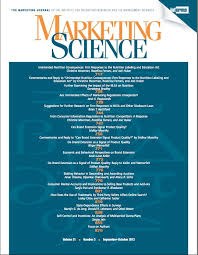
Stremersch, S. and Lemmens, A. (2009). Sales Growth of New Pharmaceuticals Across the Globe: the Role of Regulatory Regimes Marketing Science, 28(4):690--708.
-
Affiliated author
-
Publication year2009
-
JournalMarketing Science
Prior marketing literature has overlooked the role of regulatory regimes in explaining international sales growth of new products. This paper addresses this gap in the context of new pharmaceuticals (15 new molecules in 34 countries) and sheds light on the effects of regulatory regimes on new drug sales across the globe. Based on a time-varying coefficient model, we find that differences in regulation substantially contribute to cross-country variation in sales. One of the regulatory constraints investigated, i.e., manufacturer price controls, has a positive effect on drug sales. The other forms of regulation such as restrictions of physician prescription budgets and the prohibition of direct-to-consumer advertising (DTCA) tend to hurt sales. The effect of manufacturer price controls is similar for newly launched and mature drugs. By contrast, regulations on physician prescription budgets and DTCA have a differential effect for newly launched and mature drugs. Whereas the former hurts mature drugs more, the latter has a larger effect on newly launched drugs. In addition to these regulatory effects, we find that national culture, economic wealth, and lagged sales also affect drug sales. Our findings may be used as input by managers for international launch and marketing decisions. They may also be used by public policy administrators to assess the role of regulatory regimes in pharmaceutical sales growth.